Good afternoon. Here is the Friday, July 15 edition of Today in Slovakia – the main news of the day in less than five minutes.
For weekend events and news on travel and culture in Slovakia, see the latest edition of our Spectacular Slovakianewsletter.
Trade unions and employers clinch deal to boost minimum wage
Trade unions and employers have agreed an increase in the minimum wage in Slovakia for next year. In 2023 will go up by €54, or 8.4 percent, from the current €646 per month to €700 per month. Bonuses for work on Saturdays, Sundays and nights, originally based on the minimum wage, remain frozen.
This is the first ever agreement between employers and trade unions on the amount of the minimum wage for the following year. The government should no longer interfere with the 2023 minimum wage, since according to the law, it must respect the minimum wage agreement reached by employers and unions, collectively referred to as the 'social partners'.
Monika Uhlerová, the recently elected head of the Confederation of Trade Unions (KOZ), acknowledged the agreement.
“It is a decision without any political implications or influence,” she said, as quoted by the SITA newswire.
More stories onSpectator.sk
TREES: Under a Slovak-Hungarian project 12 ancient trees in historical parks and gardens across Slovakia were chosen for expert treatment.
SPECIAL PLACE: An inclined elevator inside the Čierny Váh pumped-storage hydroelectric power plant is getting overhaul.
BIOMETHANE: The first biomethane plant in Slovakia aims to harness biodegradable municipal waste.
If you like what we are doing and want to support good journalism, buy our online subscription. Thank you!
Feature story for today
At one time, a visit to the museum dedicated to writer, poet and key figure in the Slovak national movement Janko Jesenský was mandatory for all primary school kids in Bratislava. But after the fall of the communist regime in 1989, interest waned and the museum closed.
Now, though, it has re-opened, offering an exhibition not just about Jesenský but also information about the villa in which the museum is housed, and the man who designed it, prominent architect Friedrich Weinwurm.
“This is a time capsule because this apartment started to be used as a museum very early [after the subject of the museum died],” Daniel Hupko, curator of literature collections at the Bratislava City Museum (MMB), said at the official re-opening of the museum.
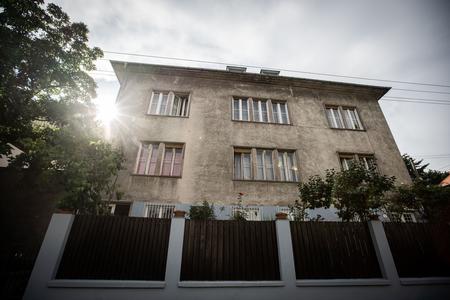
Picture of the day
This image of a full moon rising over Ľubovňa castle in eastern Slovakia was chosen by NASA as its Astronomy Picture of the Day for July 15, 2022.
Anniversary of the day
The Važecká cave, the smallest accessible cave in Slovakia, is celebrating the 100th anniversary of its discovery. Although the entrance parts of the cave had long been known to local residents as the 'Holes Under the Hills', the continuation of the cave premises was only discovered in 1922. After several days of digging, on July 8, 1922, Ondrej Adolf Húska, with the help of Adolf Somro, penetrated into the main areas of the cave, which were later made accessible. The cave was created by the waters of the White Váh hundreds of thousands of years ago. It is richly adorned with many forms of stalactites, quills, sinter lakes and stalagmites.
In other news
The Constitutional Court is to decide whether a package of financial measures which was marketed as addressing the effects of inflation but which has sparked the latest coalition crisisis actually legal. President Zuzana Čaputová filed a motion with the Constitutional Court in line with her earlier pledge to do so.
A second case of monkeypox was confirmed by laboratories in Slovakia, the Public Health Office (ÚVZ) informed on Thursday, July 14. The person with the disease is middle-aged, and is isolating. No relation to the first case has been discovered. The ÚVZ expects the number of cases in Slovakia to increase in the future, although not to epidemic level.
The food producer Tauris Group is ending sales of its products via the retail chain Kaufland. It will withdraw its Tauris, Zipser, Ryba Košice and Piknik products from the retailer's shelves. It says it wants to prioritise product quality and consumer trust over lower prices, adding that if it were to accede to the pricing demands of the retail chain, it would have to use alternative proteins or flour instead of meat, replace traditional recipes with shortened technological processes, and use colouring. Also, Ryba Košice would have to use herring as a substitute for cod.
A direct flight should soon operate between Gothenburg, the second-largest city in Sweden and in which the carmaker Volvo has its seat, and Slovakia's second city, Košice. The reason is Volvo Cars’ planned investment near the metropolis of eastern Slovakia. Transport and Construction Minister Andrej Doležal said that the investor requested a direct air connection between the two cities as part of negotiations over the investment. “We are doing everything to subsidise it within the scope of state aid schemes, in the form of waiving part of the airport fees, in both Gothenburg and Košice,” said the minister, adding that they are working to open a direct connection as soon as possible.
New orders in industry rose 20 pecent in May to €5.77 billion year on year after four months of year-on-year decline, the Statistics Office reported on Friday.
The Health Ministry has signed a €16.7 million contract with a group of suppliers including Amberg Engineering Slovakia and Ced Consulting to design a new university hospital at Rázsochy in Bratislava.
Transport and Construction Minister Andrej Doležal (Sme Rodina nominee) has said he can imagine that fees to enter the Tatra National Park (TANAP) would eventually become mandatory. The TANAP administration recently came up with the idea of introducing a voluntary entrance fee. The tourism association of the High Tatras sees a problem mainly in logistics and the amount of fees collected in the territory of the national park.
If you have suggestions on how this news overview can be improved, you can reach us at editorial@spectator.sk.



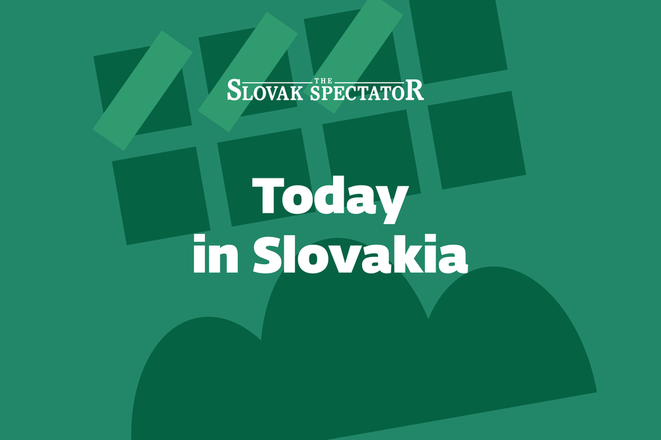 (source: SME.sk / Hej,ty)
(source: SME.sk / Hej,ty)
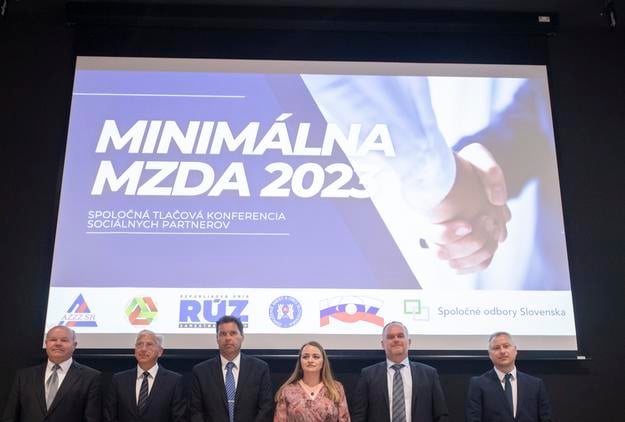 The social partners announced a new minimum wage for 2023 at a joint press conference. (source: TASR)
The social partners announced a new minimum wage for 2023 at a joint press conference. (source: TASR)
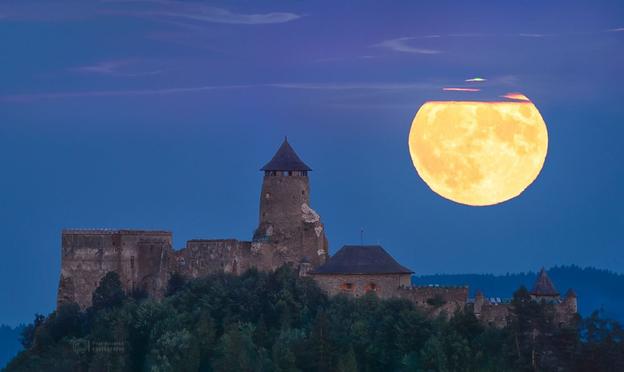 Full Moon rising over Ľubovňa Castle in eastern Slovakia. (source: Petr Horálek/NASA)
Full Moon rising over Ľubovňa Castle in eastern Slovakia. (source: Petr Horálek/NASA)
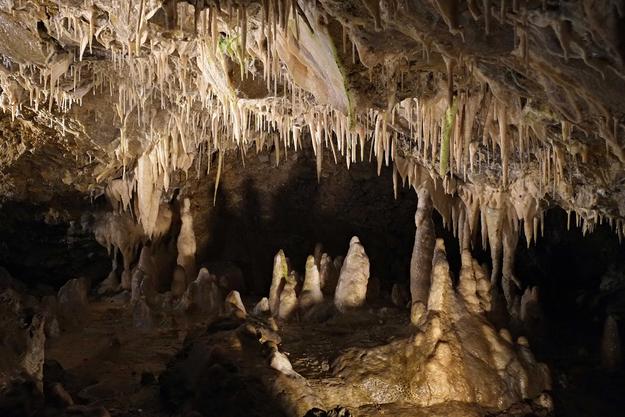 Važecká cave (source: TASR)
Važecká cave (source: TASR)